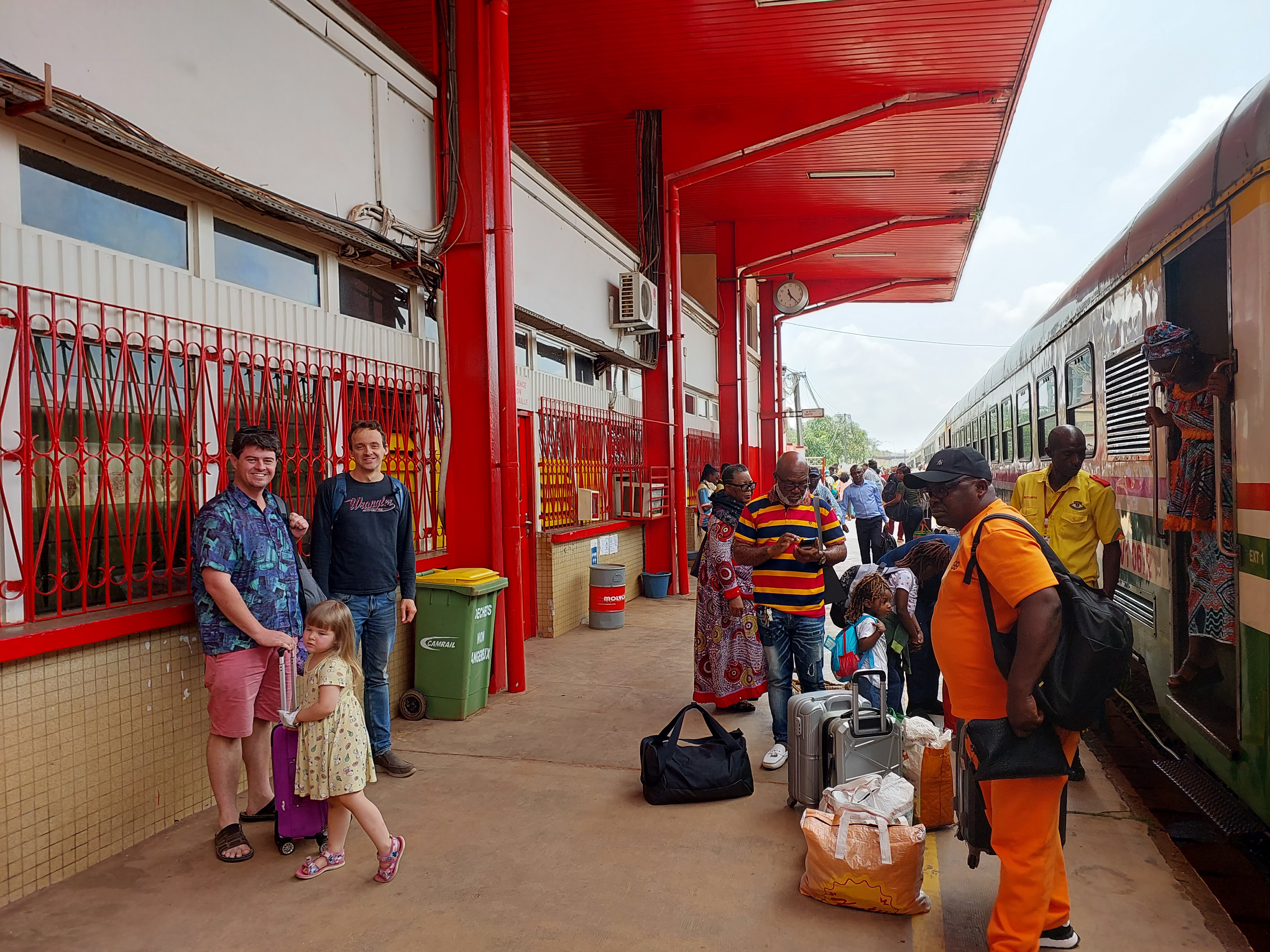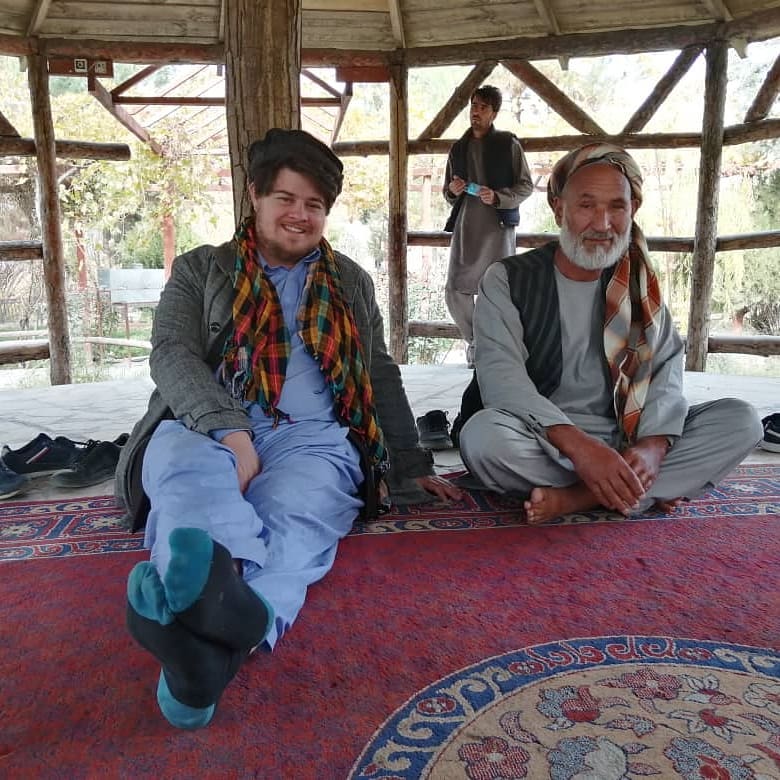Cameroon is one of Central Africa’s most varied and fascinating countries. A crossroads of cultures, landscapes, and languages. Travellers who’ve been there often describe it as friendly but unpredictable – a place where hospitality is genuine, but logistics and regional tensions require a bit of street sense. Cameroon is largely safe to visit if you know where you’re going, stick to stable areas, and take normal city precautions.
Douala — Fast-paced, loud, and full of life
Douala is the commercial hub and most travellers’ first stop. It’s noisy, hot, chaotic — but also full of character, with excellent street food, beach bars in Bonapriso, and friendly locals who love to chat.
It often gets a bad rap, but Douala is pretty safe during the day, with the main thing tourists needing to worry about being scams, such as shops and taxis. The main annoyances are touts and pickpockets around busy areas like Marché Central or Akwa. At night, keep to better-lit zones such as Bonapriso and Bonanjo, and avoid wandering through backstreets alone. Makepe is an up-and-coming middle class area that has restaurants, cafes, shops and mid-range hotels. Another relatively safe area in which to stay.
For getting around, locals and expats alike recommend using ride-hailing apps such as Yango or Ongo, which operate reliably in Douala. They’re cheaper and safer than flagging random taxis, and you don’t need to negotiate fares. In theory anyway. Of course there’s still always a chance that you get a driver who will try and change the fare or something, but this is much less likely when ordering through an app.
Yaoundé — Hillier, calmer, and more relaxed
Yaoundé is often called the “soft landing” city. It’s smaller, cleaner, and feels more manageable. Most areas of central Yaoundé — Bastos, Ngoa-Ekellé, and downtown — are fine for walking around in daylight. Street crime is lower here than in Douala, but you should still keep phones and wallets secure in crowded areas.
The city’s hilly layout means taxis are the main transport option. Again, Yango is the easiest and safest way to move around, especially after dark. Despite being safer than Douala, Yaoundé is also a much quieter city in the evening, meaning it’s easier to end up in a dark area by yourself.
Western Cameroon — Buea, Limbe, Bamenda and the Anglophone crisis
This is where you need to pay attention. The North-West and South-West regions, centred on Bamenda and Buea, have been affected by ongoing conflict between separatist groups and government forces since 2017.
Limbe and the coast near Mount Cameroon are calmer and have had little significant trouble recently, but travellers need to stay alert. Avoid rural roads after dark, as there have been sporadic checkpoints and clashes. The road between Kumba and Bamenda is the most affected and should be avoided altogether.
If you’re visiting Buea or Limbe, check locally for current conditions, stay in recognised hotels, and don’t attempt to travel north into Bamenda or the surrounding countryside. Sticking to the coastal area is generally safe, as well as beautiful, and welcoming, especially compared to what’s reported further inland.
For more information about this aspect of things, check out our blog Explaining the war in Cameroon: is travel still safe?
Northern and border regions
Travelling toward Cameroon’s northern and eastern frontiers brings new dynamics.
-
Far North (Maroua, Waza National Park): It’s possible to visit with care, but proximity to Chad and Nigeria means occasional security operations or banditry. Stick to main routes and avoid isolated stretches at night.
-
Eastern Cameroon (Bertoua, border with CAR): The forested border with the Central African Republic is remote and lightly policed. The roads are rough with traffic accidents being one of the main dangers in this area. Travelling here is best done with a driver who knows the region and current road conditions.
-
Western borders (towards Nigeria): Border crossings west of Bamenda are currently considered unstable due to the Anglophone conflict and should be avoided entirely.
Central and southern regions
Areas such as Ebolowa, Ngaoundéré, and Kribi are generally calm. Kribi, in particular, receives consistent praise for its relaxed beach atmosphere and safety. Nightlife is friendly, the seafood is superb, and most visitors describe it as one of the most laid-back destinations in Africa.
Practical Guide to Staying Safe
1. Use taxi apps: The Yango app works reliably in both Douala and Yaoundé and is the single best way to move around. No price haggling, traceable rides, and locals use it daily.
2. Keep valuables minimal: Cameroon isn’t dangerous, but theft happens. Keep your phone and cash secure in crowded areas and avoid showing expensive gear.
3. Stay where people are: Walk on busy streets, not side alleys. In cities, people are used to foreigners, and blending in isn’t the point.
4. Ask locals for current info: Hotel staff and drivers usually have the best read on which roads or areas are calm and which to avoid. Local advice is often more accurate than anything online. Even this article!
5. Be patient with logistics: Delays happen — power cuts, roadblocks, or tropical rain can throw off schedules. Flexibility and a sense of humour make all the difference.
Cameroon is a country of warmth, rhythm, and resilience. Yes, there are regions best avoided right now, and city travel requires awareness — but across Douala, Yaoundé, Kribi, and much of the central belt, travel is relatively easy and safe.
Cameroon rewards those who go beyond the headlines: the grilled fish on the coast, the mountain air in Buea, the lively energy of Yaoundé’s cafés. With a little planning and some local savvy, Cameroon is ultimately a safe and unforgettable place to travel. Want to check it out for yourself? Have a look at our upcoming group tours in Cameroon .



